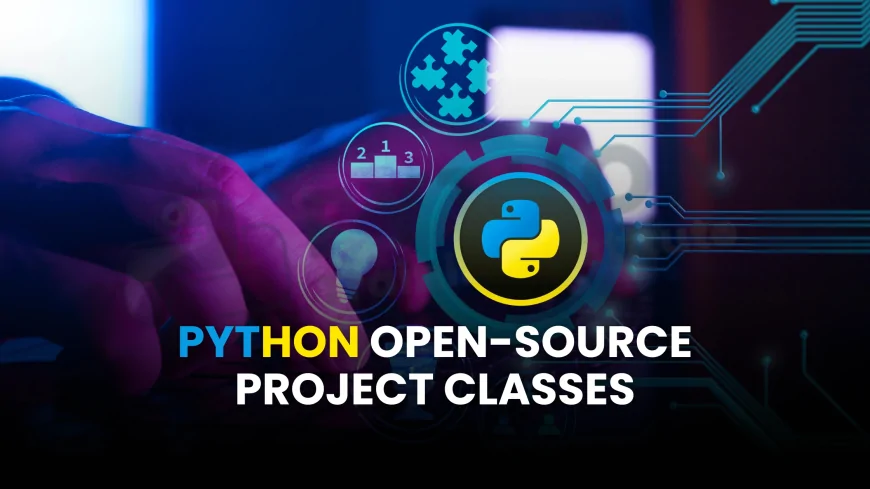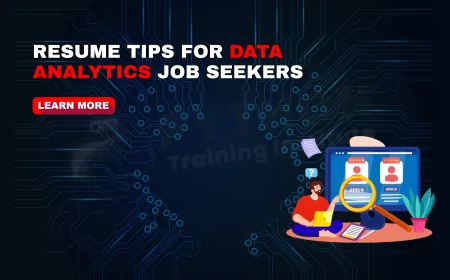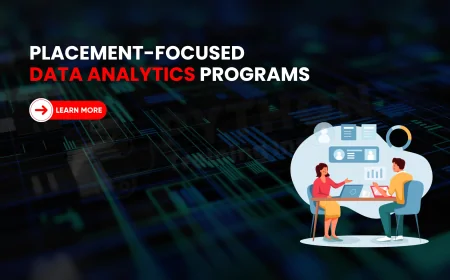Open-Source Python Project-Based Training Pune | Learn Python Through Real Open-Source Projects Pune
Explore open-source Python project-based training in Pune. Build real apps, contribute to GitHub repositories, and gain hands-on development experience with mentorship and career support. Ideal for students, professionals, and job seekers.

Table of Contents
- Introduction
- Why Open‑Source and Project‑Based Learning?
- Core Components of the Training
- Top Project‑Based Programs in Pune
- Open‑Source Project Examples
- Training Format & Adoption
- Career Impact & Support
- Fees, Duration & ROI
- How to Choose the Right Program
- FAQs
- Conclusion
Introduction
Open-source project-based Python training brings students and professionals together to learn by contributing to **real-world GitHub projects**, often collaboratively. In Pune, such training emphasizes hands-on involvement—melding open-source participation with instructor mentorship, code reviews, and resume-building.
Why Open‑Source & Project‑Based Learning?
- Authentic contributions: Adds real PRs to GitHub, not simulations
- Collaborative skill: Learn version control, CI/CD, peer code reviews
- Builds credibility: Showcase real issues solved on public repos
- Community exposure: Network with global Python contributors
- Job advantage: Hiring managers value engagement in open-source repositories
Core Components of the Training
| Component | Description |
|---|---|
| Intro to Git/GitHub | Fork-clone-push workflow, branching, pull requests |
| Open‑Source Mindset | Issue triaging, maintaining contribution etiquette |
| Real‑Project Work | Fixing Python bugs, docs, feature additions |
| Code Review | Instructor and peer feedback, style and design reviews |
| CI/CD Exposure | Integration with GitHub Actions or Travis CI |
| Mentorship & Soft Skills | Developer collaboration, open discussions, demo presentation |
Top Project‑Based Programs in Pune
- Webasha Technologies: in Pune offers project-based Python programs, drawing inspiration from community-driven models like the COEP Free Software Users Group—featuring hands-on workshops focused on open-source tools, GNOME integration, and collaborative development projects.
Open‑Source Project Examples
- CLI utility plugin: Add a new filter to an existing open‑source CLI tool
- Data visualization helper: Contribute to a plotting PyPI library
- Web framework extension: Fix bugs or add middleware in Flask/Gunicorn
- CI/CD integration: Write GitHub Action to run linting/tests for a repository
- Documentation upgrade: Improve Sphinx docs for an open-source package
Training Format & Adoption
- Live sessions + open‑source lab hours: Hybrid classroom or online
- Cohort‑based timeline: 8–12 weeks to complete projects collaboratively
- Guided proposals: Mentors help pick a repo and define meaningful PRs
- Audit & review: Weekly sessions for mentor code reviews and demos
- Community showcase: Participants present contributions in a mini-conference format
- Placement kit: Featuring GitHub portfolio, resume integration, and job workshops
Career Impact & Support
- Visibility: Recruiters can view your GitHub with community-accepted contributions
- Networking: Connect with senior Python devs from Pune tech and universities
- Recruitment assistance: Some cohorts connect participants to startups/MNC hiring
- Open-source resume: A live code portfolio demonstrates authentic impact
Fees, Duration & ROI
Course Fees:
-
Project-based Python programs at Webasha Technologies typically range from ₹18,000 to ₹30,000, depending on course complexity, mentorship access, and project modules included.
-
Advanced tracks involving data science, AI, or full-stack integration may cost up to ₹35,000.
Duration:
-
Programs usually span between 6 to 12 weeks, with flexible schedules such as:
-
Weekend-only batches: Ideal for working professionals.
-
Intensive weekday batches: Suitable for full-time learners or job seekers.
-
Live project submission deadlines and mentorship sessions are embedded throughout the course timeline.
ROI (Return on Investment):
-
Students gain hands-on experience through real-world projects, increasing their portfolio value.
-
ROI is high due to:
-
Job-oriented skill development
-
Industry-recognized certification
-
Placement assistance (with ~85–90% placement rate reported by past students)
-
Alumni have successfully secured roles in domains like:
-
Python Development
-
QA Automation
-
Web App Development (using Django/Flask)
-
Entry-level Data Science or DevOps roles
Expected ROI Timeline: Most learners recover course investment within 3 to 6 months post-placement, especially in high-demand roles..
How to Choose the Right Program
- Open‑source focus: Confirm that final deliverables are merged into public projects
- Mentor engagement: Regular code review and proposal guidance are critical
- Cohort size: Small groups (12–20) allow meaningful collaboration
- Project relevance: Choose programs linked with live repos and CI
- Career tools: GitHub README, demo blog, resume highlight should be included
FAQs
1. What is “open‑source project‑based training”?
It’s training where participants contribute to real public repos—not only learning, but delivering real merged code.
2. Do I need GitHub experience?
Basic Git is sufficient—these programs teach open-source workflows from scratch.
3. How long does it take to get a merged PR?
Typically within 1–4 weeks of focused contribution, depending on project size.
4. Will someone guide which issues to work on?
Yes—mentors suggest beginner-friendly issues and break down tasks.
5. Are contributions counted on resume?
Absolutely—including repo links, PR stats, contribution graphs.
6. Is there placement support?
Many programs offer mock interviews and recruitment tie-ups, particularly paid cohorts.
7. Do I get a certificate?
Yes—most institutes issue completion certificates featuring GitHub contributions.
8. What should I look for in projects?
Repos with regular maintainers, issues labelled “good first bug,” CI integration.
9. Are these programs part-time?
Yes—many are weekend or evening cohorts over 8–12 weeks.
10. Do I need to pay fees?
COEP FSUG is free; others range from ₹10k to ₹35k depending on mentorship and placement benefits.
11. Are group contributions allowed?
Yes—most programs balance individual and small team deliverables.
12. Will I get code reviews on my PR?
Yes—mentors and peers review code with feedback on style, tests, and documentation.
13. Can I start as a complete beginner?
Yes—programs typically begin with Git, workflow, and community norms.
14. Retrospectively, is open-source training worth it?
Definitely—public contributions often stand out in interviews more than closed-lab work.
15. How many projects should I contribute to?
At least 2–3 merged PRs across one or more repos is a good baseline.
16. Will CI/CD experience be taught?
Yes—most cohorts include CI pipeline exposure via GitHub Actions or similar.
17. Can these contributions turn into freelance work?
Yes—many contributors freelance for tools they’ve contributed to.
18. Is code ownership taught?
Yes—you learn maintaining your own forks, issues, and library modules.
19. What if PRs are rejected?
Mentors guide how to improve. Even rejected PRs show active learning.
20. How do I continue after the program?
Stay in the same repos, look for labels like “help wanted,” join meetups, and continue adding value.
Conclusion
Open‑source Python project-based training in Pune merges coding skills with real-world collaboration. Institutions—from COEP FSUG and Symbiosis SSPU to Ethans and Atlantis—provide hands-on mentoring on live projects, accelerators that shape both technical proficiency and developer confidence. By choosing programs that deliver merged contributions, portfolio impact, and mentorship, participants transform from learners to published open-source contributors—driving job opportunities, freelance gigs, or further tech roles.
What's Your Reaction?
 Like
0
Like
0
 Dislike
0
Dislike
0
 Love
0
Love
0
 Funny
0
Funny
0
 Angry
0
Angry
0
 Sad
0
Sad
0
 Wow
0
Wow
0
















